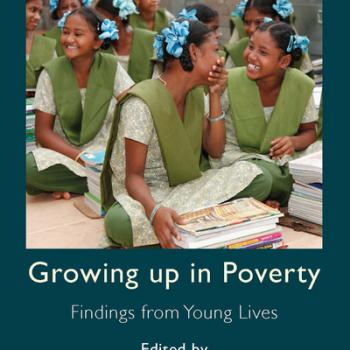Publication Information

While exploring the issues associated with ethnic minority education in Vietnam, this chapter argues that, while the role of economic factors cannot be ignored, providing ethnic minority children with financial assistance alone does not solve their educational problems. To deal with the issues around ethnic minority education, it is important to take into account the reasons why children stay at school or drop out. While much research on ethnic minority education in Vietnam has been limited in extent and narrow in scope, the chapter aims to contribute a more holistic understanding of the factors that have impacted on the school outcomes of ethnic minority children. Through an in-depth analysis of children?s and adults? perceptions and experiences of schooling, the study highlights that poverty, poor teaching and learning environments, social stigma, and cultural values, among other factors, have combined in complex ways to prevent ethnic minority children from taking full advantage of educational initiatives and programmes designed in their names. The study, therefore, contributes to the policy dialogues and practices that promote equal educational access and quality education for ethnic minority children in the country.
The final published version of the article is available on the publisher's website.
Reference:
Vu Thi Thanh Huong (2014) ' Ethnic Minority Children's and Adults' Perceptions and Experiences of Schooling in Vietnam: A Case Study of the Cham H'roi', in Michael Bourdillon and Jo Boyden (eds) Growing up in Poverty: Findings from Young Lives (pp. 225-244). Oxford: Palgrave Macmillan.

While exploring the issues associated with ethnic minority education in Vietnam, this chapter argues that, while the role of economic factors cannot be ignored, providing ethnic minority children with financial assistance alone does not solve their educational problems. To deal with the issues around ethnic minority education, it is important to take into account the reasons why children stay at school or drop out. While much research on ethnic minority education in Vietnam has been limited in extent and narrow in scope, the chapter aims to contribute a more holistic understanding of the factors that have impacted on the school outcomes of ethnic minority children. Through an in-depth analysis of children?s and adults? perceptions and experiences of schooling, the study highlights that poverty, poor teaching and learning environments, social stigma, and cultural values, among other factors, have combined in complex ways to prevent ethnic minority children from taking full advantage of educational initiatives and programmes designed in their names. The study, therefore, contributes to the policy dialogues and practices that promote equal educational access and quality education for ethnic minority children in the country.
The final published version of the article is available on the publisher's website.
Reference:
Vu Thi Thanh Huong (2014) ' Ethnic Minority Children's and Adults' Perceptions and Experiences of Schooling in Vietnam: A Case Study of the Cham H'roi', in Michael Bourdillon and Jo Boyden (eds) Growing up in Poverty: Findings from Young Lives (pp. 225-244). Oxford: Palgrave Macmillan.

